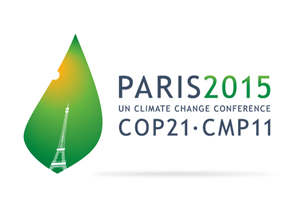By Michael B. Gerrard
This morning the Hague District Court issued its decision in a lawsuit brought by the Urgenda Foundation against the State of the Netherlands. The court ordered the Dutch state to limit annual greenhouse gas emissions from the country to 25% below 1990 levels by 2020. The government had pledged a 17% reduction, but the court found that insufficient.
The court concluded, “Due to the severity of the consequences of climate change and the great risk of hazardous climate change occurring — without mitigating measures — the court concludes that the State has a duty of care to take mitigation measures. The circumstances that the Dutch contribution to the present global greenhouse gas emissions is currently small does not affect this.”
In reaching this conclusion, the court cited (without directly applying) Article 21 of the Dutch Constitution (“It shall be the concern of the authorities to keep the country habitable and to protect and improve the environment”); the emissions reduction targets of the European Union; principles under the European Convention on Human Rights; the “no harm” principle of international law; the doctrine of hazardous negligence; the principle of fairness, the precautionary principle, and the sustainability principle embodied in the UN Framework Convention on Climate Change; and the principle of a high protection level, the precautionary principle, and the prevention principle embodied in the European climate policy.
The court undertook a detailed examination of reports of the Intergovernmental Panel on Climate Change, the United Nations Environment Programme, and various Dutch institutions, and concluded that the mandated 25% reduction was the level needed to meet the country’s fair contribution toward the UN goal of keeping global temperature increases within two degrees Celsius of pre-industrial conditions.
The court did not specify how the government should meet the reduction mandate, but it said some of the possible measures include limiting the use of fossil fuels by emissions trading or tax measures; introduction of renewable energy sources; reduction of energy consumption; and reforestation and combating deforestation.
The court accepted that Urgenda (a contraction of “urgent agenda”) was representing “current and future generations of Dutch nationals.” It rejected the State’s argument that the court would be interfering with the separation of powers, concluding that the court has the power and duty to assess the lawfulness of the actions of the elected government and parliament.
This is the first decision by any court in the world ordering states to limit greenhouse gas emissions for reasons other than statutory mandates (such as the U.S. Clean Air Act). As shown in this survey article, the Urgenda case was the first attempt outside the United States to bring these theories before a court in the climate change context.
A similar suit was recently filed in Belgium and another is expected shortly in Norway. The decision may encourage lawyers in some other countries to use similar theories in their courts. The Urgenda suit relied in part on the Oslo Principles on Global Climate Change Obligations.


